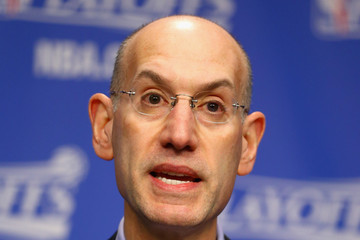NBA Commissioner Calls for Federally Regulated Sports Betting

Adam Silver, the NBA Commissioner, is known for his support of a federal framework that will regulated sports betting in the United States. This week, Silver wrote an op-ed on the New York Times website, reiterating his position that Congress “should adopt a federal framework that allows states to authorize betting on professional sports, subject to strict regulatory requirements and technological safeguards.” Silver suggested that the US look to Europe as a regulatory model.
The opinion piece comes on the eve of a ruling by a federal judge about the future of sports betting in New Jersey. The Garden State has been pushing from all directions to legalize sports betting, while the NBA and other professional sports leagues have been fighting the state’s request to take bets on sporting events. They point out that New Jersey’s efforts are unlawful under the Professional and Amateur Sports Protection Act of 1992 (PASPA) which bars state-sponsored sports betting in all states except Nevada, Delaware, Montana and Oregon.
Silver said that “without a comprehensive federal solution, state measures such as New Jersey’s recent initiative will be both unlawful and bad public policy.”
He also said that without “times have changed since PASPA was enacted”.
“Gambling has increasingly become a popular and accepted form of entertainment in the United States,” wrote Silver. “Most states offer lotteries. Over half of them have legal casinos. Three have approved some form of Internet gambling, with others poised to follow.”
However, the NBA Commissioner is not suggesting a free-for-all policy when it comes to sports betting in the United States.
Regulation, according to the Commissioner, would need to include “mandatory monitoring and reporting of unusual betting-line movements; a licensing protocol to ensure betting operators are legitimate; minimum-age verification measures; geo-blocking technology to ensure betting is available only where it is legal; mechanisms to identify and exclude people with gambling problems; and education about responsible gaming.”











